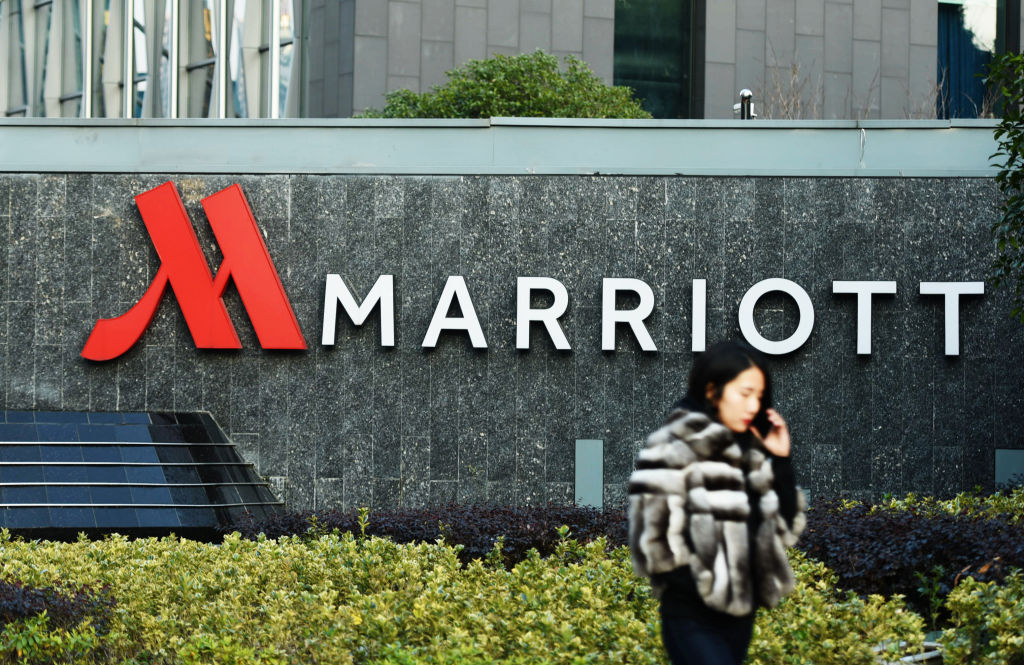It is common knowledge that a rising China has a more assertive foreign policy and is inclined to show its strength to achieve its geopolitical objectives.
Sovereignty issues are especially sensitive and the policing of such issues in China extends beyond the diplomatic arena.
A number of multinationals in China recently learnt the repercussions of political incorrectness as they operate in an increasingly nationalistic and powerful Chinese consumer market.
Which multinationals were implicated?
According to the Financial Times, a string of foreign corporations have been either publicly reprimanded or issued warnings by regulators for geographical descriptions that challenge China's position on long-standing territorial disputes from Taiwan to Tibet.
These corporations include:
- US hotel chain Marriott International
- Spanish fast-fashion retailer Zara
- U.S. carrier Delta Air Lines
- Australian carrier Qantas
- US medical device company Medtronic
What mistakes and how did China react?
These corporations were "guilty" of labelling Tibet and Taiwan as independent countries in questonaires or online drop-down menus, causing them to incur the wrath of Chinese government and consumers.
Marriott
Listed Tibet, Hong Kong, Macau, and Taiwan as separate "countries" in a customer questionnaire.
Despite issuing 5 public apologies, it got into a new round of trouble when one of its corporate Twitter accounts "liked" and shared a post congratulating the hotel group on listing Tibet and Hong Kong as independent countries.
Outcome:
Its Chinese website and app were blocked for a week.
[related_story]
Zara, Medtronic and Qantas
Taiwan was categorised as an independent country in pull-down lists on their websites.
Outcome:
They were directed to rectify "illegal contents" on their websites, and also to issue a public apology within a stipulated time.
Zara issued a statement apologising for the mistake.
"We wrongly described Taiwan as a country in the section 'Join Life' of our webpage. Please accept our sincere apologies. We have rectified this specific content immediately and we are now conducting a comprehensive self-inspection."
Qantas also released a similar statement stressing that the error was found in an internal audit following Marriott's experience, and that they were not contacted by the authorities.
"Due to an oversight, some Chinese territories were incorrectly listed as ‘countries’ on parts of our website. We are correcting this error."
Medtronic also issued a statement saying the company "completely understands the stance of the Chinese government on relevant sovereignty issues," adding, "we sincerely apologize for causing misunderstanding among the public."
Delta Air Lines
Taiwan and Tibet were labelled as separate countries on its website.
Outcome:
Authorities summoned executives of Delta, and called for an "immediate and public" apology from the airline.
In a statement, the US airline said:
"It was an inadvertent error with no business or political intention"
"We apologize deeply for hurting the feelings of Chinese people."
Why is China so sensitive?
Background
- Hong Kong and Macau are former European colonies that are now part of China. They are governed by Beijing as special administrative regions (SAR), which is a type of provincial-level administrative division.
- Tibet was annexed in 1950 by Beijing which has long claimed that it has been an indivisible part of China throughout history.
- Taiwan is China’s most sensitive territorial issue. It is regarded as a non-negotiable 'core interest' and a breakaway 'province' that China will take back by force if necessary under the "One China Principle/Policy".
Less tolerant of violations of sensitive sovereignty issues
According to Bloomberg, as China's economic and geopolitical influence grow, it's increasingly emboldened to show less tolerance of what it sees as violations of its political bottom line by foreign companies. The warnings signal that the country may deploy more sticks against foreign companies that can’t risk losing business in the world’s second-biggest economy.
Reuters points out that such intensification of efforts to police how foreign businesses refer to Chinese-claimed territories shows how sensitive the issue of sovereignty has become in China. The involvement of more than one Chinese authority in rebuking businesses across different industries suggested possible coordination at a high level of government.
As Chinese foreign ministry spokesman Lu Kang says:
The companies that come to China should respect China’s sovereignty and territorial integrity, abide by China’s laws, and respect the feelings of the Chinese people.
This is the minimum requirement of any company going to another country to carry out business and investment.
Past incidents
In the past, actions against corporations who were perceived to have infringed Chinese sovereignty seldom involved the government.
In Dec. 2004, hackers defaced McDonald's corporate website because it had both Taiwan and Hong Kong listed alongside other nations in a "Country" pull-down menu.
McDonald's management then changed the terminology to "Country/Market" after getting rid of the defacement.
Also, German carmaker Audi AG apologised last year for using a map that excluded Taiwan and parts of Tibet and the Xinjiang region after it was called out on Chinese social media.
(Editor's note: we've modified details in this article to more accurately reflect what happened with Qantas.)
Top image via Getty Images
If you like what you read, follow us on Facebook, Instagram, Twitter and Telegram to get the latest updates.
